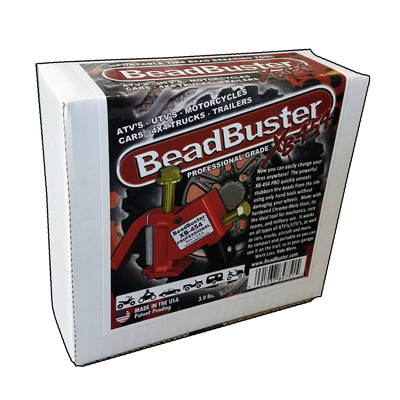BeadBuster makes the world’s best portable tire bead breakers and tools for the DIY and professional mechanic, race team, and farmer. BeadBuster works great on ATV’s, motorcycles, cars, 4×4 trucks, tractors, lawn mowers and even light aircraft. Now you can easily change your own tires at home or on the trail. Work less, ride more, and save money with BeadBuster’s tire change tools.
BeadBuster was founded by a pair of avid Powersports enthusiasts and DIY mechanics who were frustrated with the current selection of manual tire changing hand tools/expensive dealership service charges for swapping tires on their ATV’s and adventure bikes. Knowing we could do it better, we designed the most affordable and effective bead breaker to date, the BeadBuster Bead Breaker. BeadBuster’s goal is designing the best possible portable bead breaking tools to easily change your tires at home or on the trail, that do the job properly and efficiently, every time. Our high-quality, Made-in-USA XB-45x BeadBuster series are easy to use and come in four different model specs to support the casual weekend trail rider, all the way up to professional race teams. Our Bead Breakers work with any size wheel and rim including ATV’s, adventure bikes, track cars, off-road trucks, farm tractors, and trailers.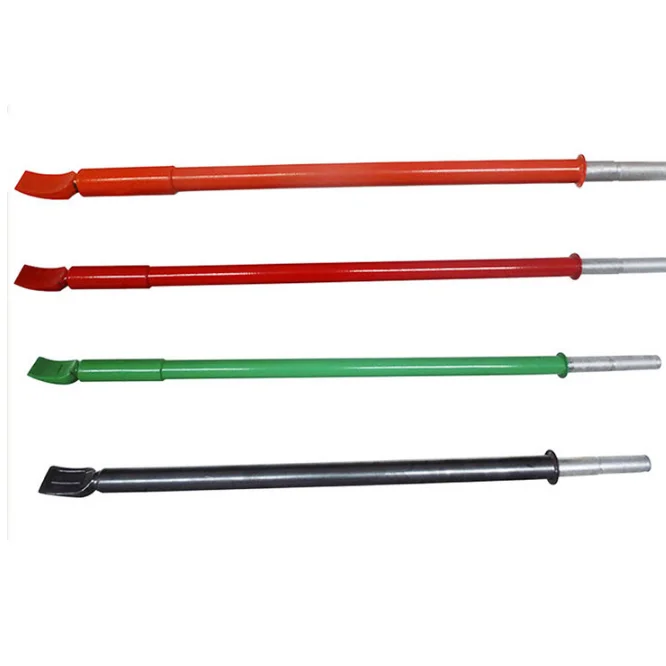 We stand behind the quality of our products and provide rock-solid warranties no matter what type of abuse you throw at them. Ride more and shop our online store for Bead Breakers, tire irons, tire changing hand tool, accessories, and full-line of spare parts.
We stand behind the quality of our products and provide rock-solid warranties no matter what type of abuse you throw at them. Ride more and shop our online store for Bead Breakers, tire irons, tire changing hand tool, accessories, and full-line of spare parts.
BeadBuster’s compact and lightweight motorcycle bead breakers make breaking the bead on any two wheeler a breeze. Our bead breakers are designed to work on every bike in your garage, from husky enduros and the orange team adventure bikes, all the way to cruisers and sportsters. Heavy Touring Bikes like the Honda Goldwing and BMW K1600 have really stubborn tire beads, but the BeadBuster bead breakers can deal with those just as easily. Our USA built XB-45x bead breaker range is easy to use, protects your spokes and rims from scratches, and is small enough to fit in your fender pack.
Our USA built XB-45x bead breaker range is easy to use, protects your spokes and rims from scratches, and is small enough to fit in your fender pack.
Will it work on my Bike? Yes! The XB-450 and XB-455 work on all motorcycle wheels including: Motocross, Enduro, Trials, Adventure / Dual Sport, Sport Bikes, Cruisers, Touring, Super Bikes.
ATV tires are some of the most difficult to change of any vehicle, and it was for this application that the BeadBuster was invented. The BeadBuster XB-45x series bead breakers are compact enough to take with you for those emergency tire changes on the trail or trail head…and it is powerful enough to break loose even the most stubborn, nasty, dry-rotted tire beads. BeadBuster has everything the ATV enthusiast needs for tire service on the trail, or at home in the garage.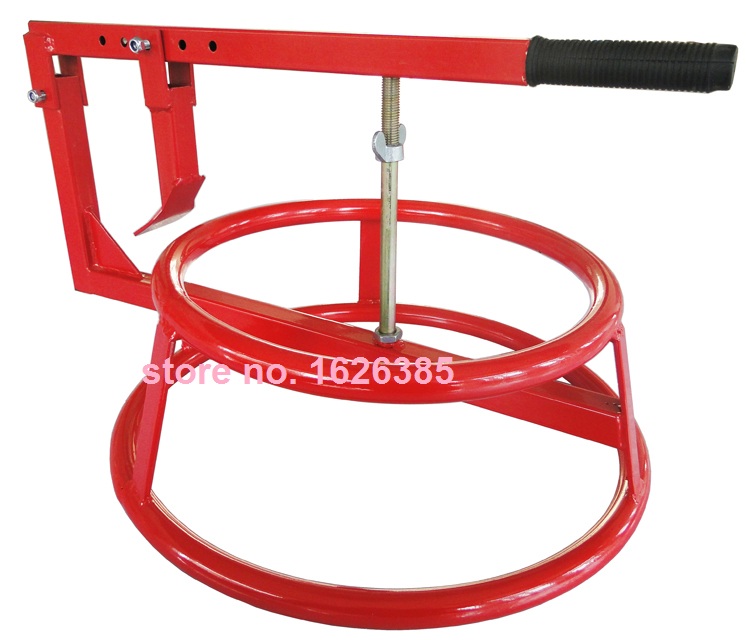
Will it work on my ATV? Yes! The XB-450, XB-455 & XB-451 work on all 7″&8″ mini-quad and 3-wheeler wheels with a separate spacer, and every other kind of ATV wheel >9″ including: Sport Quads, Utility Quads, Side by Sides (SxS), UTV’s, Amphibious 6 & 8 Wheeled vehicles.
You want to change your car tires yourself? The BeadBuster line of tire bead breakers have everything you need to get the job done. It doesn’t matter how big or wide or old the wheels are, the BeadBuster will make quick work of breaking the beads on your car tires.
Will it work on my Car? Yes! The XB-450 and XB-455 work on most passenger vehicle wheels. Certain cast alloy wheels have restrictive inside geometry and curvature that prevent the tool from clamping well, in which case a XB-452 will work well with these special-case wheels. Check out the info on the Help-Me-Choose page for more info.
If you have a truck with big, chubby off-road tires…you’ve probably run into more than one tire shops that said their equipment wasn’t big enough to handle your tires. Now you can change those tire by yourself, at home, at your convenience…BeadBuster makes the job easy.
Will it work on my Truck? Yes! The XB-450 will handle lightly modified and street legal off-road trucks, and the XB-550 HD & XB-554 PRO will tackle everything else, including: Rock Crawlers, Mud Bogs, Monster Trucks, any thing with REALLY BIG WHEELS!
The XB-550 HD & XB-554 HD=PRO are our biggest and baddest manual bead breakers. We designed it to easily break the bead on the large tires found on farm tractors, industrial OTR (Off-The-Road) vehicles, heavy trucks and military vehicles.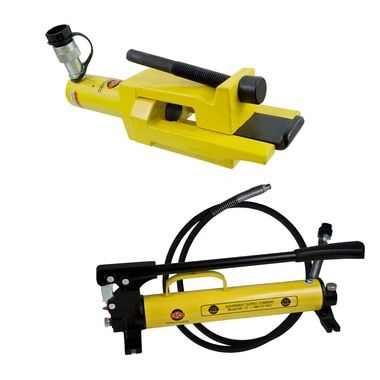 The XB-550/554 will take care of all of your farm tractor and large tire changing needs. If you need to change tires on vehicles like Skid Loaders and Grade-Alls, that have extremely thick side walls, you need the XB-554 HD-PRO.
The XB-550/554 will take care of all of your farm tractor and large tire changing needs. If you need to change tires on vehicles like Skid Loaders and Grade-Alls, that have extremely thick side walls, you need the XB-554 HD-PRO.
Will it work on my Tractor? Yes! The XB-550 HD was specifically designed to handle the big tires found on Farm Tractors, Military and Overland Vehicles, OTR and Industrial Vehicles, Semi-Tractor Trailers and Busses.
The XB-454 PRO was designed to handle extreme forces and repeated operation and abuse. Whether its the tight interference of race car tires, constant use in a production mechanic’s shop, or the critical functionality of a military application; the 454 PRO will hold up to any challenge you throw at it. The XB-454 PRO is proudly made in USA, entirely from 4140 chrome-moly steel that is hardened and tempered for ultimate strength.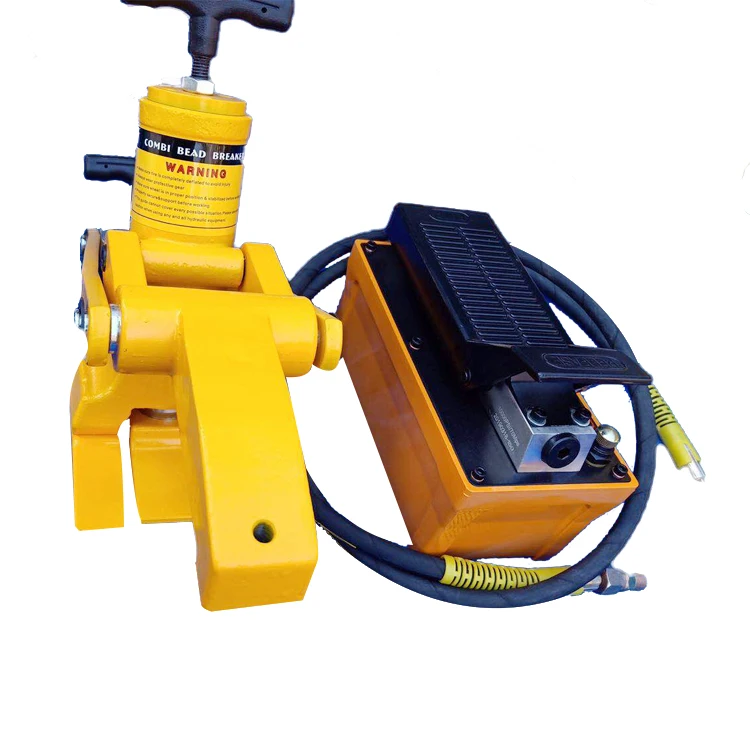 It is robotic welded for precision and accuracy.
It is robotic welded for precision and accuracy.
Will it work on my Race Car? Yes! The XB-454 PRO work on all kinds of race cars including: Sprint Cars, Quarter Midgets and Modified Stock Cars
CHANGE YOUR OWN TIRES …. AT HOME …. ON THE TRAIL …. ON THE ROAD …. AT RACE MEETS …. ANYWHEREwhich beadbuster for my wheels?
Home → HELP ME CHOOSE
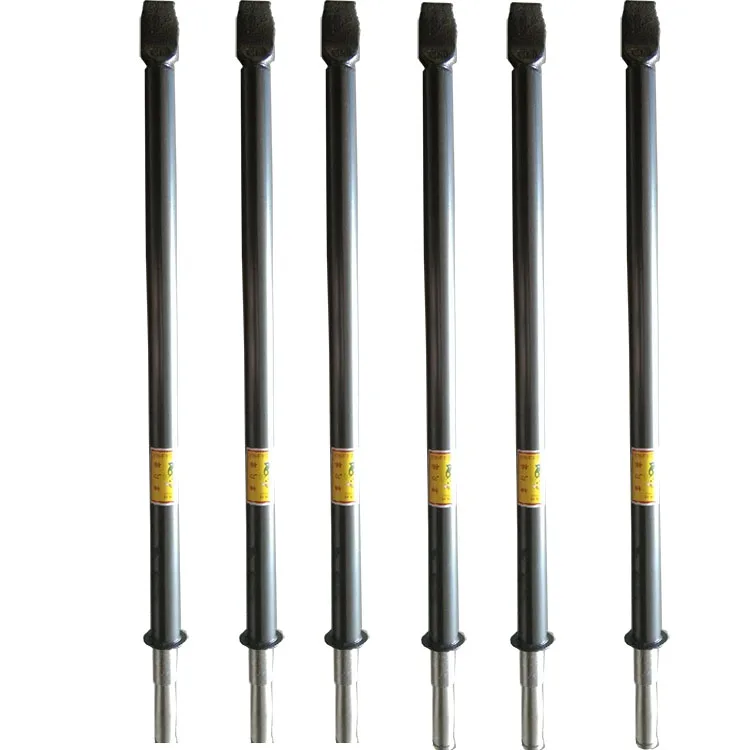
ATV’s are the most difficult of the regular-sized wheels to break the bead on, and the BeadBuster XB-45X series tools were designed specifically for this most challenging application
REFERENCE TABLE FOR COMPATIBLE VEHICLE RIM CODES4, 5 Rim Code [Diameter (inches)]
4 = 45X series (XB-450, 451, 452, 454 PRO, 455) 5 = 55X series (XB-550 HD, 554 PRO)ALL TERRAIN4 AT [7, 8]**
4, 5 AT [9-15]
MOTORCYCLE4 MT [15-23]
4 TLA [19-21]
4 Cylindrical Bead Seat (small) [10, 12, 16, 17, 18, 19, 21]
4 Cylindrical Bead Seat (med) [10, 12, 16, 17, 18, 19, 21]
4 Cylindrical Bead Seat (large) [10, 12, 16, 17, 18, 19, 21]
4, 5 D [16]
4 MT [15-23]
4 MT [15-23]
AGRICULTURAL4, 5 W (small) [20]
5 W (med) [16]
5 W (large) [16-30, 34-42, 46-54 (evens)]
5 W (X-large) [16-30, 34-42, 46-54 (evens)]
5 DW-A (small) [24-50 (evens)]
5 DW-A (large) [24-50 (evens)]
5 DW-B (small) [26-50 (evens)]
5 DW-B (large) [26-50 (evens)]
5 DH [32]
5 DH-B [32]
5 DD [38, 42, 46]
5 9, 11 [18]
5 MW-A [34, 38, 42, 46]
5 MW-B [34, 38, 42, 46]
5 W-C, W-CH [16. 1]
1]
4, 5 J (ISO) [13-26]
4, 5 T (temporary use) [13-18]
INDUSTRIAL4, 5 I-55, I-70, I-90 [6, 8, 9, 10, 12, 14]
4, 5 JA [10, 12, 14, 15]
5 6.00SP [10]
5 6.00ST [10]
5 9.00 [12,15]
5 S [12]
5 BD [15]
5 4.33R [8]
4, 5 2.50C [4, 8]
4, 5 3.00D [8, 9]
4, 5 K [9]
4, 5 E [8, 9, 10]
5 F [6, 8, 10, 16]
4, 5 2.50C divided [4, 8]
4, 5 3.00D divided [8, 9]
5 8.00G divided [12]
4, 5 4.50K & 5.50K divided [9]
4, 5 E divided [8, 9]
5 F [6, 8, 10]
5 5. 000S divided [12]
000S divided [12]
4, 5 K [15-16]
5 L [15-16]
4, 5 Type A – J, JJ [14-24]
4, 5 Type F – J, JJ, E, K, L, LB [14-24]
4, 5 Type G – J, JJ [14-24]
4, 5 KB [14-16]
5 LB [14-16]
4, 5 C [9-20]
4, 5 D [9-20]
4, 5 E [9-20]
4, 5 KA [9-20]
4, 5 F [9-20]
4, 5 J, 5 deg [14-20, 22, 23]
4, 5 K [15, 16]
5 L [15, 16]
OFF-THE-ROAD5 8.00TG [20, 24]
5 15deg Drop Center [56.5]
5 15deg Drop Center [59.5]
5 12.00LR [25]
5 13.00LR [25]
5 DWM [32]
TRUCK/BUS5 I(1) [15, 20, 22, 24]
5 I(2) [15, 20, 22, 24]
5 II(1) [15, 20, 22, 24]
5 II(2) [15, 20, 22, 24]
5 III(1) [20, 22, 24]
5 8.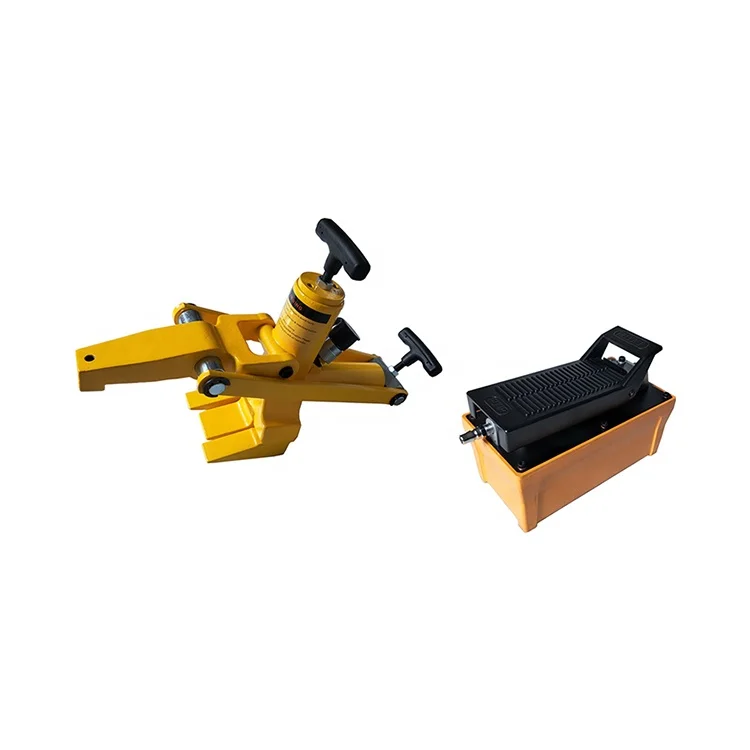 5 [21, 25]
5 [21, 25]
5 12.00 [21, 25]
IMPORTANT NOTES:
 If the opposite side of the lip (where the clamp would make contact) is very contoured or angled, or otherwise has obstructions, the 45X-series tools with the standard clamp arm will tend to slip out instead of pulling the feet in. The BeadBuster needs an approximately parallel surface (with respect to the clamp arm) to make secure contact for clamping. (see illustration) The XB-452 has a longer clamp arm that effectively interfaces with these ‘trouble wheels’. -ALSO- The XB-550 HD has a the long clamp and will work on these wheels, as well as the XB-451 and XB-454 PRO outfitted with the optional Long Clamp Arm (BB5-CA) If you only plan to do Automotive wheels, the XB-452 is the most cost effective option.
If the opposite side of the lip (where the clamp would make contact) is very contoured or angled, or otherwise has obstructions, the 45X-series tools with the standard clamp arm will tend to slip out instead of pulling the feet in. The BeadBuster needs an approximately parallel surface (with respect to the clamp arm) to make secure contact for clamping. (see illustration) The XB-452 has a longer clamp arm that effectively interfaces with these ‘trouble wheels’. -ALSO- The XB-550 HD has a the long clamp and will work on these wheels, as well as the XB-451 and XB-454 PRO outfitted with the optional Long Clamp Arm (BB5-CA) If you only plan to do Automotive wheels, the XB-452 is the most cost effective option.MORE INFO AND DEFINITIONS OF TIRE & WHEEL FEATURES
CHECK OUT OUR TIRE CHANGING TOOL KITS
 Its overall design is repeated in all of the XB-45X series tools. It was originally designed for the most challenging ATV tires, but it works just as well on a large variety of vehicles, shown in the chart above. The XB-450 will work on the majority of ATV wheels that the average rider will encounter. For simplicity, the clamp arm has the hinge pin welded in place, so it cannot be used with other clamp arm styles.ALL PURPOSE & ATV’s w/ REINFORCED RIMS
Its overall design is repeated in all of the XB-45X series tools. It was originally designed for the most challenging ATV tires, but it works just as well on a large variety of vehicles, shown in the chart above. The XB-450 will work on the majority of ATV wheels that the average rider will encounter. For simplicity, the clamp arm has the hinge pin welded in place, so it cannot be used with other clamp arm styles.ALL PURPOSE & ATV’s w/ REINFORCED RIMS 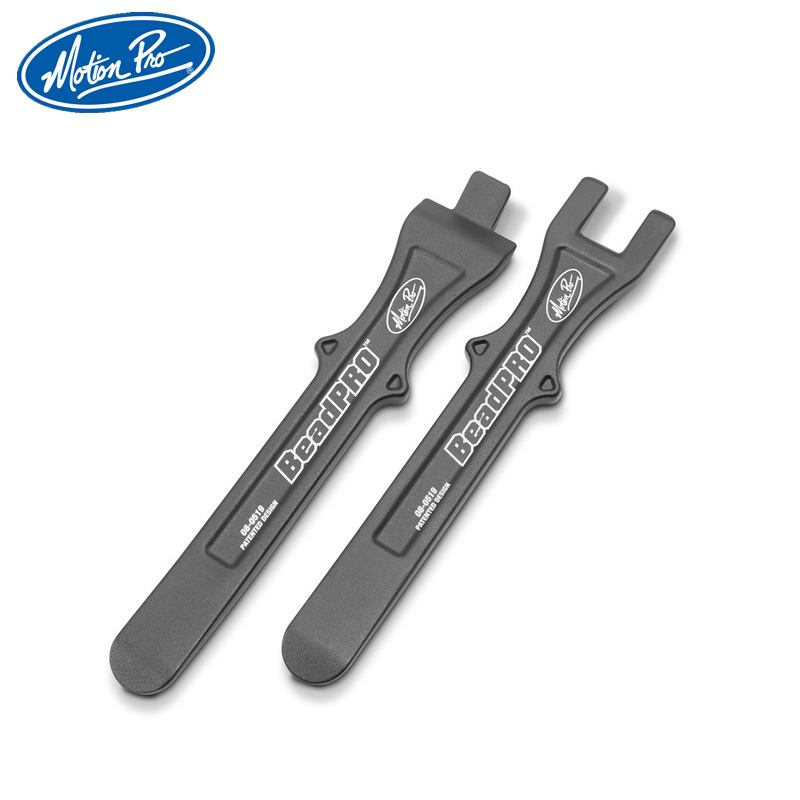
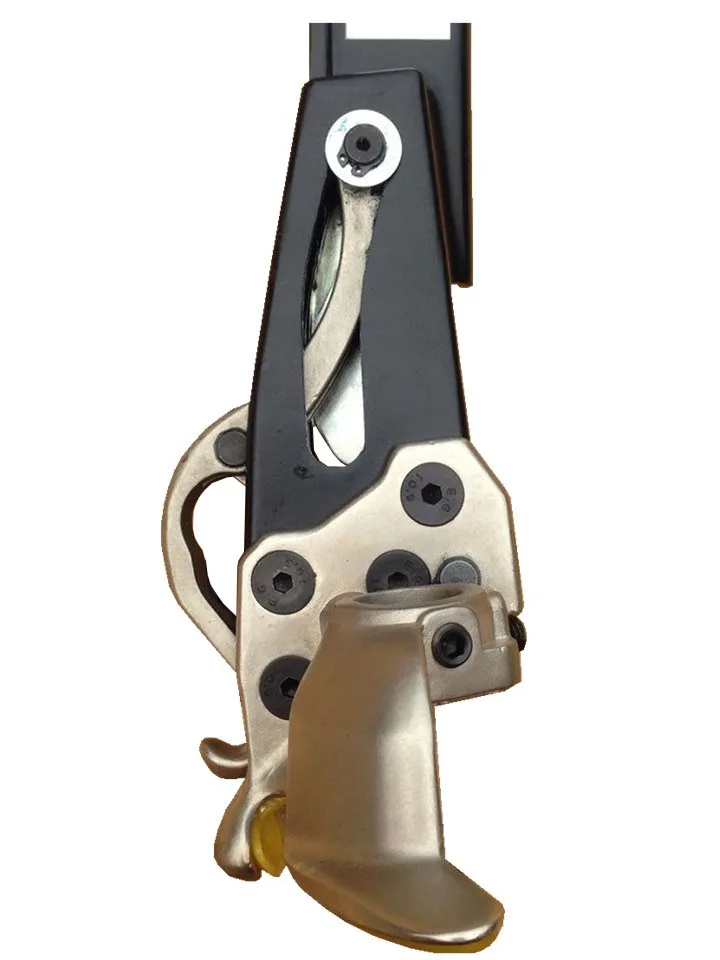
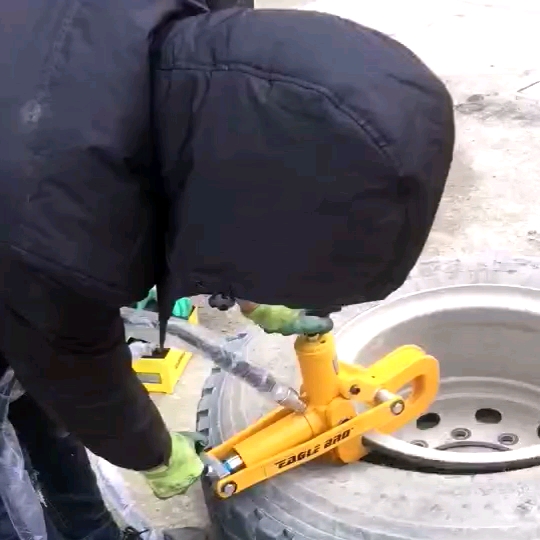 HEAVY DUTY
HEAVY DUTY 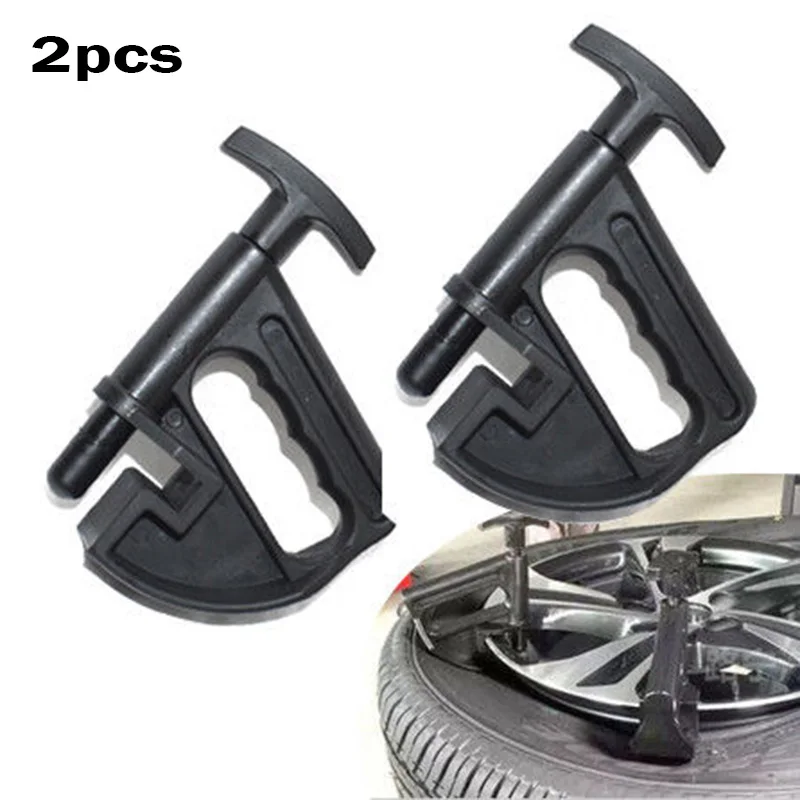 It has all of the features and benefits of the XB-550, with a couple key upgrades that makes it an ultra-durable and stronger tool that will handle the most difficult large tire applications, and day-in-day-out commercial use.
It has all of the features and benefits of the XB-550, with a couple key upgrades that makes it an ultra-durable and stronger tool that will handle the most difficult large tire applications, and day-in-day-out commercial use. We offer the following high quality hydraulic bead breakers from AME International.
Wheels up to 25"
- One-, two- and three-piece wheels
- Most popular bead breaker on all agricultural wheels
- Tool clamps hydraulically with 11 tons of force
- Use with any air/hydraulic pump with pressure 10,000 psi (700 bar)
- Stroke: 9. 5 cm
5 cm
- Weight: 15.5 kg
Code:
9
Wheels up to 25"
- One-, two- and three-piece wheels
- Least expensive washer breaker for new three-piece wheels
- Larger clamp and tabs allow easy tool clamping on wheels
- Compact design allows tool to be used on the front or back of the wheel
- Use with any 10,000 psi air/hydraulic pump. inch (700 bar)
- Stroke: 9.5 cm
- Weight: 17 kg
Code: 0
TITAN Earthmover Bead Breaker
- Ideal for tire changers who need occasional use of a bead breaker
- 10 ton cylinder has enough strength to break most beads
- The device will work on 5 wheel rims with pockets for loosening beads
- Stroke: 10 cm
- Weight: 15.5 kg
Code: 1
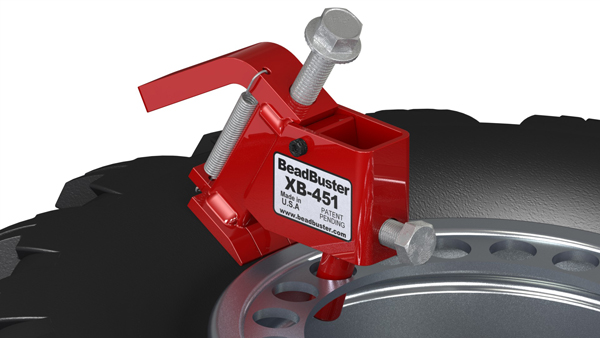 11090
11090 Stinger Bead Breaker
- Lightweight version for breaking three-piece wheels
- Device mechanically locks onto the wheel, regardless of size or clearance
- 10 tonne drive cylinder pushes the puck back from the wheel
- Unique head designed to allow the tool to push against the bead rather than the sidewall of the tire
- Supplied with 2 wedges to prevent the bead from reseating
- Supplied with a tool box
- Stroke: 20 cm
- Weight: 13 kg
Code: 2
For 25" and 29" earthmoving wheels
- Compact, lightweight tool
- Works only with 5-section wheels with shim pockets
- 10 tons of hydraulic force
- Used with any 10,000 PSI (700 bar) air/hydraulic pump
- Stroke: 5.4 cm
- Weight: 10 kg
Code: 7
Wheels from 25" to 51"
- Most popular bead breaking tool for earthmover tires
- Only works with 5-section wheels with shim pockets
- Use with any 10,000 psi air/hydraulic pump.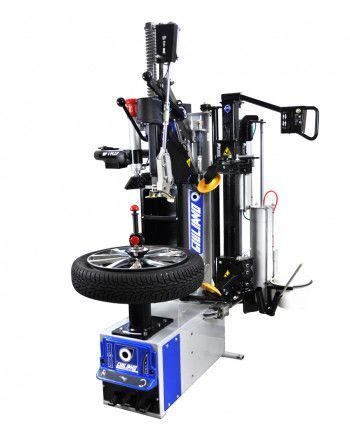 inch (700 bar)
inch (700 bar)
- Stroke: 10.8 cm
- Weight: 14.5 kg
Code: 3
Wheels from 39" to 63"
- Bead Punch for use on earthmoving machine wheels from 39"up to 63"
- Used with high capacity air/hydraulic pump (5 quarts or more) 10,000 PSI (700 bar)
- Stroke: 15.25 cm (breaks all beads)
- Weight: 23.5 kg
Code: 4
Wheels from 51" to 63"
- Designed specifically to work with original Topy and Rimex wheels
- Designed to prevent the tool from kicking out under load
- Stroke: 15.9 cm
- Weight: 24.5 kg
Code: 6
Earthmoving Tire Bead Breaker
- Operates on 5 piece wheels that do not have pockets to loosen washers
- Includes 6 curved wedges that are used to prevent tire "re-seating"
- Used with any air/hydraulic pump 10,000 PSI (700 bar)
- Stroke: 25.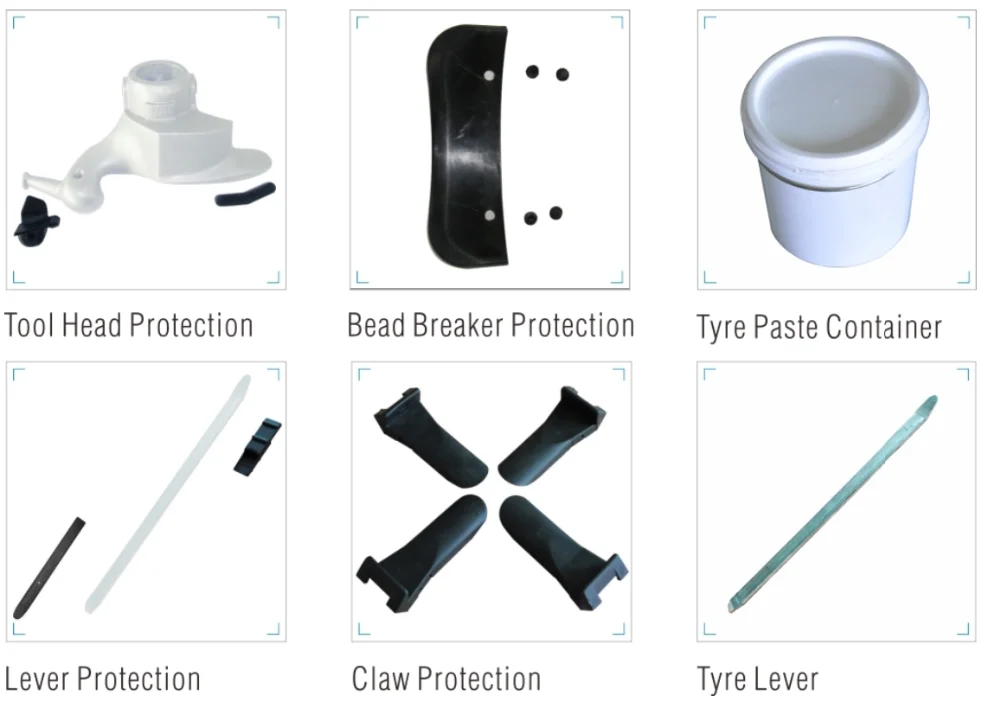 4 cm
4 cm
- Weight: 23.5 kg
Code: 8
Combi Bead Breaker Kit
1 x Bead Breaker (Model #11010)
1 x Pneumatic Hydraulic Pump (Model #15900)
- Produces 10,000 PSI pressure
- Oil capacity: 2.36 liters (2.5 qt) )
- Reservoir type: Polyethylene
1 x Hydraulic hose (model no. 16040)
- working pressure 10,000 psi inch (700 bar)
Code: 9
Combi Bead Breaker Kit
1 x Bead Breaker (Model #11010)
1 x Pneumatic Hydraulic Pump (Model #15920)
- Generates 10,000 PSI pressure
- Oil capacity: 4.7 liters (5 qt)
- Reservoir type: Steel
1 x Hydraulic hose (model no. 16040)
- working pressure 10,000 psi in. (700 bar)
Code:
0
Double Combination Bead Breaker Kit
2 x OTR Giant Tire Bead Breaker (Model #11000)
1 x Air Hydraulic Pump (Model #15920)
- Generates 10,000 PSI
- Oil Capacity: 4. 7 liters (5 qt) )
7 liters (5 qt) )
- Tank type: Steel
2 x Hydraulic hoses (model no. 16040)
- working pressure 10,000 psi in. (700 bar)
1 x 8' 10,000 PSI Rated Hydraulic Hose (Model # 16100)
1 x Hydraulic Manifold Kit (Proper Couplings Included) - Model No. 16165
Code:
1
For beading machine no. 11044
- Adapter for TOPY wedge wheel extension
- Designed to work with TOPY 9 wedge wheels0003
- No scar/base rim contact
- Shorter rim flange sections
- Can be added to 11044 in minutes, threaded on installation
Part Number:
3
For beading machine no. 11044
- Adapter for 11044 Titan SVM/ OVM Wheel
- No scar/contact with rim base
- Designed to work with narrow bead seat bands
- Can be added to 11044 in minutes, clip-on installation
Code:
4
 11344
11344 For beading machine no. 11044
- Adapter for 11044 Rimex DGS Wheels
- No scar/contact with rim base
- Designed to work with narrow bead seat bands
- Can be added to 11044 in minutes, snap-on installation
Code: 5
For beading machine no. 11044
- Extended Clamp Frame Fits Sur-Loc Bead Bands
- High Chromium Steel Provides Structural Integrity In The Hardest Conditions
- Can Be Added To 11044 In A Few Minutes, Snap In Installation
P/n:
6
For beading machine no. 11044
- Contains two jaws for the back and bead bands
- High chromoly steel provides structural integrity in the toughest conditions
- Fits most OTR wheels in a 5 piece assembly
- Can be added to 11044 in minutes, snap mount
- Do not use on CAT Shur-Lok units model #11043
P/N:
7 Another change season is approaching. And you may remember that on one of the tires after the last winter/summer there is a jamb - a small bump. I don’t want to run to the store for the sake of one new tire. We understand. Or maybe it looks even better if repaired?
And you may remember that on one of the tires after the last winter/summer there is a jamb - a small bump. I don’t want to run to the store for the sake of one new tire. We understand. Or maybe it looks even better if repaired?
Yes, not every wheel that has met with a nail, rebar sticking out of the ground or a sharp stone on the road is considered damaged. Everything, of course, depends on the scale of the damage and its location on the tire itself. Some are easily repaired, while others are simply impossible to do - the tire can only be sent to the trash.
A bulge on a wheel, referred to by drivers as a bump or bulge, is the most common tire sidewall defect. It appears due to a collision with an obstacle or after falling into a pit, more often at high speed. The threads of the sidewall carcass are easily damaged by impact, and the tire at this point can no longer hold the load and air pressure - swelling appears. A small bump sooner or later turns into a big one, and driving with such a defect is dangerous - the wheel can shoot at any moment. At high speed, this is fraught with loss of control, departure from the road and a rollover.
At high speed, this is fraught with loss of control, departure from the road and a rollover.
The quality of roads in Kazakhstan contributes to the appearance of bulges on tires
Some types of bulges are repairable, although this is a temporary measure. Not a single patch can restore the factory rigidity. Ideally, change the tire.
Special cord patches can extend the life of a tire with a herniation, even if the swelling has appeared on the tread. The sidewall is a different story. If the swelling appeared at a distance of more than 40 mm from the side, it can be repaired. If not, then the wheel needs to be replaced. Blisters on low profile tires are most often non-repairable.
For maximum safety when riding with a repaired bump, insert the tube. This is an inexpensive and reliable solution. On our market, you can find cameras made in China and Russia, the latter are slightly more expensive, but also of better quality.
The elimination of a side cut is a serious operation, therefore, as in the case of a bump, you will have to go to the professionals.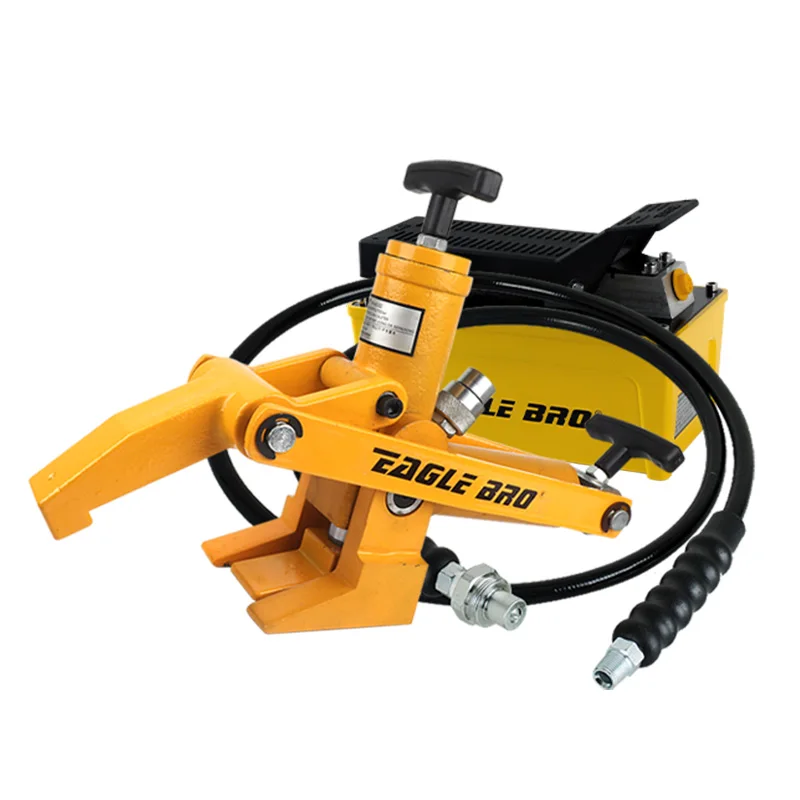 We need cord patches, fortunately in our time they are of different sizes and with a different number of layers. And if you do it wisely, then you can't do without special tools and vulcanization.
We need cord patches, fortunately in our time they are of different sizes and with a different number of layers. And if you do it wisely, then you can't do without special tools and vulcanization.
A cut, by the way, cannot be healed in all cases. If the gap is in the shoulder area of the tire, it is unlikely that anyone will undertake to repair it, since no guarantees can be given here. However, our Kulibins take on even the most difficult cases, cutting out parts of the sidewalls from the tires and even weaving the cord on their own.
Tire overhaul. We would not put such a wheel on ourselves
Low profile tires can be repaired, but more difficult. A tear in the sidewall is easier to seal on tires with a medium or high profile.
Sometimes a cut is confused with a pluck. This is when the outer layer of the sidewall caught on something sharp, a tear formed, but the frame itself remained intact. There is nothing wrong with that, although the drivers at the tire fitting company successfully repair the cut, for which they take it accordingly.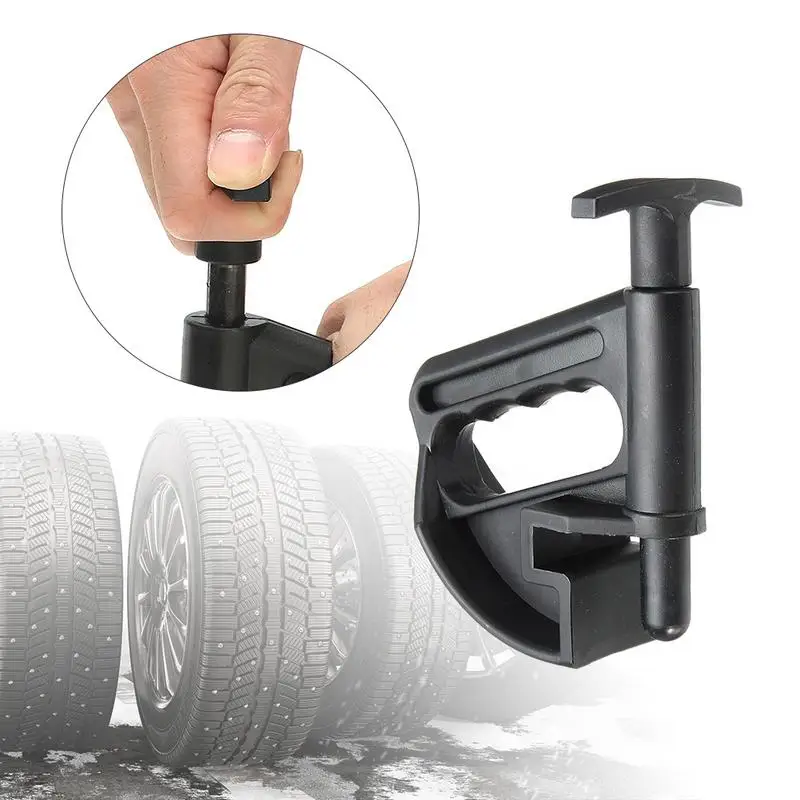
If a piece of rubber remains on the sidewall, then glue it with ordinary superglue (101st). If it came off, then it is better to cover it with raw rubber and vulcanize. Leaving the pluck bare is not recommended, because the tire carcass, often consisting of a metal cord, will quickly corrode.
In Europe, defective or used tires are perforated before being sent for scrap to prevent their resale and possible operation. But they don’t know that we have such holes on the sidewall patched once or twice
Cuts and hernias are not the only possible damage to the side of the tire. You can also spoil the side ring, in the process of changing shoes, for example. If it’s for garlic, then such a tire is already dangerous. Sooner or later, the tire pressure and the load in motion will start to squeeze the rubber off the rim - a wheel explosion can occur.
This ailment is repaired if the wire ring - the base - is intact. There are no special technologies and materials to correct this particular problem, but most often craftsmen use a two-component composition for chemical (also called cold) vulcanization. After mixing, the mass is pressed into a fat-free damage. Compound manufacturers recommend waiting 72 hours before mounting a tire. Of course, our masters do not pay attention to this condition - they put the tire right away. And it’s good if the wheel is flat because of this at night in the parking lot, and not on the road.
There are no special technologies and materials to correct this particular problem, but most often craftsmen use a two-component composition for chemical (also called cold) vulcanization. After mixing, the mass is pressed into a fat-free damage. Compound manufacturers recommend waiting 72 hours before mounting a tire. Of course, our masters do not pay attention to this condition - they put the tire right away. And it’s good if the wheel is flat because of this at night in the parking lot, and not on the road.
If the side ring tears are barely noticeable, but the wheel is still flat, then you can use a special liquid - a bead seal designed to seal a tubeless tire.
These seals have been used in motorsport for some time. In particular, in the American Formula D Drift Series, drivers used compounds to keep the tire on the rim even with minimal tire pressure. Now they are banned.
Pay attention to the left rear wheel of the Nissan Silvia S13. Due to too low pressure, it was literally taken off the disk under load
Every schoolchild faced this problem when patching the inner tube of his bike after hitting something sharp.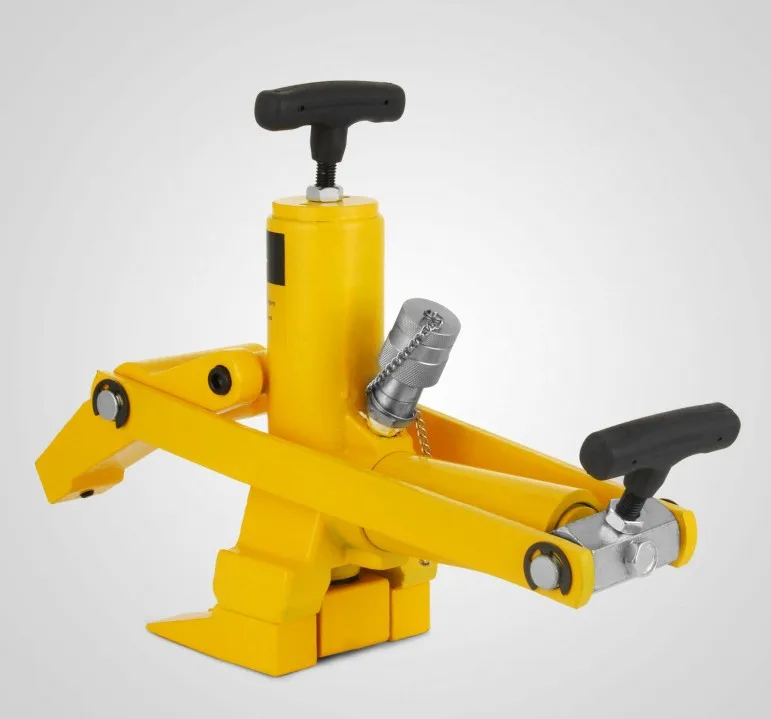 Repairing a car tire puncture with your own hands will also not be difficult even on the road. But for this you will need a pump (or compressor) and a universal tire repair kit with harnesses. All this is sold at any car market or gas station.
Repairing a car tire puncture with your own hands will also not be difficult even on the road. But for this you will need a pump (or compressor) and a universal tire repair kit with harnesses. All this is sold at any car market or gas station.
Repairing a tire on the side of the road with harnesses
The process is simple. If we are talking about the front wheels, then in most cases the wheel can not even be removed, it is enough to turn the steering wheel in the right direction, find the puncture site and carry out repairs. First, the hole is cleaned with a helical awl from the set. The tourniquet itself is smeared with glue and tucked into the eye of the awl, after which it is inserted into the tire hole. With a sharp movement, the tool is removed, and the tourniquet remains in place and clogs the hole. The tails are cut with a knife, but not at the root, it is recommended to leave about 20 mm. The tire is inflated and checked.
Sometimes a nail or self-tapping screw clogs the hole itself, remaining in it. If you see a hat in a tread, do not rush to pull it out. While the pressure is holding, move to vulcanize. And sometimes they drive with a screw in a tire for weeks.
If you see a hat in a tread, do not rush to pull it out. While the pressure is holding, move to vulcanize. And sometimes they drive with a screw in a tire for weeks.
Repair of a puncture at a tire shop
Punctures are also repaired with harnesses at a specialized service, although among professionals such repairs are not considered long-term. After a few months, the flagella dry out and can let air through. There are more advanced methods like cold and hot vulcanization. The latter is more reliable. In this case, the hole is sealed with an elastic plaster, and the funnel from a foreign object is filled with a special compound. After that, a vulcanizer is put on the tire, it heats up the rubber and solders it.
In addition to the plaster, the puncture is also repaired with special cord fungi. Craftsmen process the puncture site: drill it and treat the surface with a tool to roughen it. Then the repair area is lubricated with glue (it is also called cement) and a fungus is introduced. This is done from the inside of the tire. The cap of the fungus is rolled, and the excess legs are simply cut off from the outside.
This is done from the inside of the tire. The cap of the fungus is rolled, and the excess legs are simply cut off from the outside.
Repairing a puncture with sealant
With the advent of tubeless wheels and later run flat tires, many automakers began to abandon spare wheels. Instead, repair kits with compressors are supplied with the machines. A repair kit is essentially a bottle of pressurized sealant. Later, such spray cans began to appear on the shelves of ordinary car dealerships.
This method has not taken root in the CIS, because the condition of the roads makes it necessary to have at least a stowaway in the kit, but it can also be considered as a method of repair on the road.
Jack up the car and pump sealant through the nipple into the damaged wheel. Next, you should spin the wheel, then pump it up, lower the car and drive a few hundred meters.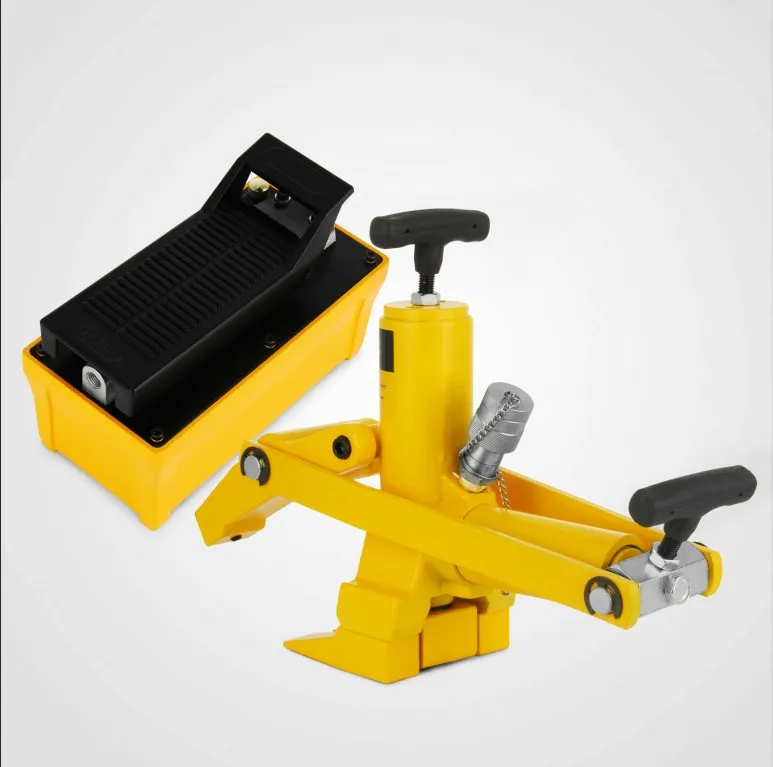 If the tire tightness has not been restored, repeat the procedure.
If the tire tightness has not been restored, repeat the procedure.
For commercial vehicles, cutting the tread with a special device (regrower) is a common thing. Moreover, such tire retreading is provided by the factory (marked REGROOVABLE on the sidewall) to increase the service life. But there are entrepreneurs who undertake to deepen the grooves in tires for passenger cars. But they are not intended for such an operation. Often used tires for sale are “refreshed” in this way. Be careful!
What is the threat?
The worst option is that the retreaded tire will shoot out on the road, as the master can damage the undertread layer when deepening the grooves. Such a tire will not be able to hold pressure at some point. There will be a boom! At best, the tire will indeed last a little longer, but is the game worth the candle? We think it's not worth it.
How is cutting done?
A regrower is used to cut the tread.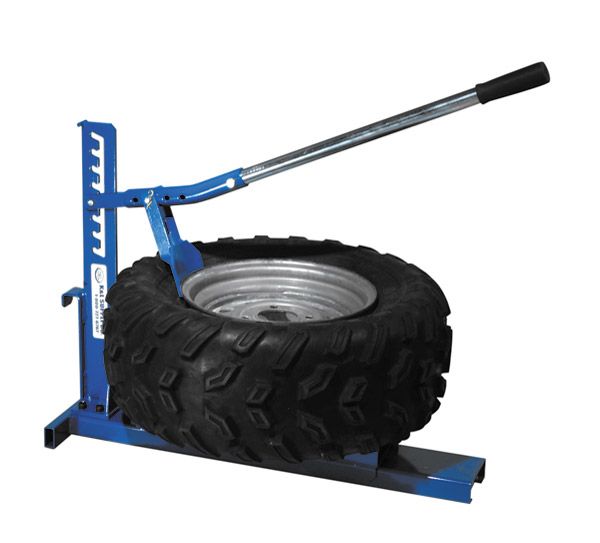 Roughly speaking, this is a large soldering iron with interchangeable tips of various shapes. It goes through rubber like a knife through butter.
Roughly speaking, this is a large soldering iron with interchangeable tips of various shapes. It goes through rubber like a knife through butter.
If the tire is for passenger cars, then it is worth taking on a regrower only in one case - when part of the tread pattern was welded with "new" rubber during repair. This is where threading comes in handy in order to restore the grooves and symmetry of the tread.
Vehicle operation is prohibited if:
- tires have a residual tread height of less than 1.6 mm;
- tires have punctures, cuts, ruptures that expose the cord, as well as delamination of the carcass, delamination of the tread and sidewall;
- tires in size or load capacity do not match the car model;
- tires of various sizes, designs (radial, diagonal, chamber, tubeless), models, with different tread patterns, winter and summer, studded and non-studded, new and restored, are installed on one axle of the car;
— Tires retreaded according to the second repair class are installed on the front axle.